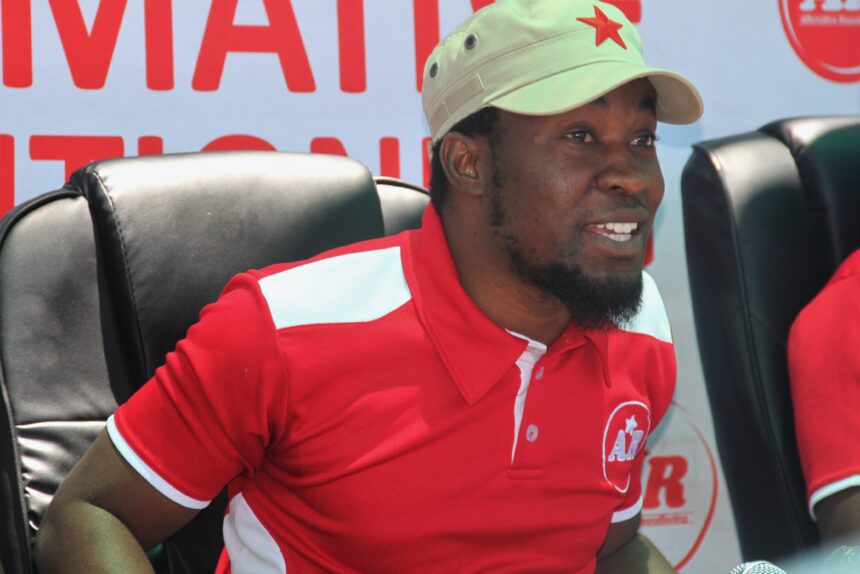Lahja Nashuuta
The Electoral Commission of Namibia has rejected the Affirmative Repossession movement’s invitation to attend a capacity-building workshop organised by the party.
The head of legal affairs of the AR, Maitjituavi Kavetu, confirmed that they had invited the ECN, the Namibia Statistics Agency (NSA) and the Namibia Institute of Democracy (NID), but their invitations were rejected.
AR leaders from various regional structures gathered in Windhoek over the weekend, where they held an elections workshop.
AR wanted ECN to present demographic data on voter registration, NSA was expected to present demographic and economic statistics’ data, whereas the NID was asked to give a presentation on political participation and civic education in the country.
While emphasising the merit of geographical data and statistics, Kavetu said the ECN was supposed to give an in-depth presentation on election processes, general voter registration, previous voter turnout, and elections, as well as enlighten the party representatives on the election calendar – a request that the ECN turned down.
“We know the majority of our population is the youth, but we wanted to know which region or regions we have more youth voters, and that’s the region we wanted – that’s why we wanted the commission to attend this workshop. We need those geographical data and latest statistics for us to strategically plan and forge ahead. Unfortunately, the commission has refused to be here today,” Kavetu said.
ECN spokesperson and Manager for Corporate Communications and Marketing Mulauli De Wet Siluka said the electoral commission mandate does not include addressing political parties’ events especially where members are dressed in party regalia and uniforms.
“We are a neutral, independent institution, and involvement in political parties’ campaigns and events is against our core values,” he said.
The alleged rejection happened two weeks ago when AR and the Namibia Economic Freedom Fighters (NEFF) criticised President Nangolo Mbumba for inviting Swapo secretary-general Sophia Shaningwa to a closed-door meeting with the ECN.
AR leader Job Amupanda wrote to ECN chairperson Elsie Nghikembua, questioning why Shaningwa was part of the meeting. He expressed concern over the ECN’s independence and ability to remain impartial, given Shaningwa’s presence.
Amupanda said he aims to change Namibia into a capable and developed state, claiming the country is currently being led by the elites, with no capacity to construct and implement economic policies for the betterment of its
people.
“We will create interventionist economic policies that foster the equitable distribution of wealth, created by high-speed growth. We can have leaders appointed based on meritocracy, but such candidates must at least meet minimum educational requirements.”
There is no basis for Namibia to have “school dropouts” making decisions on behalf of the masses, 34 years after independence.
“We will never develop without meritocracy in general and minimum requirements and criteria for public representatives in particular. This country needs capable leaders.
“Those who have been holding power since independence have betrayed the hopes of those who died for freedom. We have dashed the hopes of the Namibian people. The current leadership has failed because it is unable to transform the economy and ensure that every Namibian enjoys the benefits of democracy. The current leadership has not met the aspirations of their people under democracy,” he said.
Amupanda said the AR’s position is very clear, and the party refuses to pay lip service. He claims Namibia does not have the necessary mechanisms or instruments, such as a professional and highly skilled bureaucracy, to dispatch and drive its developmental agenda.
“This is why things are not moving forward,” he said.
The AR leader also lashed out at state-owned entities, claiming they are supposed to be driving the country’s developmental agenda, but “they are swamped with poor governance, weak management. Thus corruption is inevitable.”
Once voted into power, Amupanda promised to formulate and implement policies that serve the national interest; developmental policies focused on overcoming the root causes of poverty and inequality, and building the state’s capacity to fulfil this role.
– lnashuuta@gmail.com



